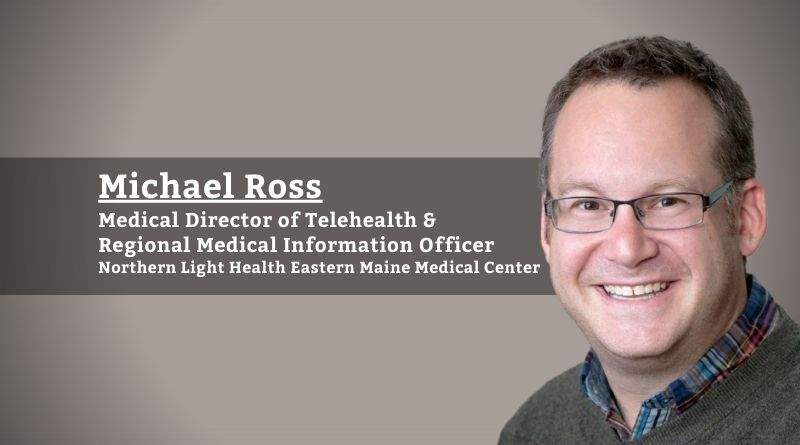How about an article on Provider-to-Provider Asynchronous E-Consults?
By Michael Ross, Medical Director of Telehealth & Regional Medical Information Officer, Northern Light Eastern Maine Medical Center
Access issues among specialty care remains an area of rising concern nationwide. At present, throughout the US healthcare system, the average time to the next appointment for a specialist is measured in weeks. According to a 2015 Merritt Hawkins survey, patients waited an average of 21.1 days to see a cardiologist in 15 major cities. Patients in Boston experienced the most extended wait of 45 days, while patients in Texas averaged a 12 day wait time.
Delayed access to care by specialists results in delayed diagnosis, duplication of services, and dissatisfaction among patients and providers. Delays produce serious medical consequences by affecting a patient’s ability to carry out daily activities, leading to increased worry, pain, and deterioration of overall health.
E-Consultations (eConsults) provides a standardized and reimbursable method of enhanced subspecialty access by enhancing PCP-to-specialist communication.
E-Consultations (eConsults) provides a standardized and reimbursable method of enhanced subspecialty access by enhancing PCP-to-specialist communication. eConsults involve the asynchronous transfer of health information from a PCP/referring provider to a specialist via a secure environment (i.e., a shared electronic health record or an external provider portal). eConsults have been used successfully around the world in the USA, the Netherlands, Spain, Canada, the UK, and Ireland.
eConsults holds promise in any environment where specialty consultation is utilized, whether it be ambulatory (PCP-to-specialist), hospital (inpatient consultation), or community hospital to tertiary hospital (transfer-focused). While each of these areas holds promise for eConsults, the most studied and widest implemented are ambulatory PCP-to-specialist eConsults.
An unofficial model of such communications has been around for decades: “The Curbside.” In curbside consultations, a PCP will contact a specialist directly to collaborate in patient care. Curbside consults are commonly performed outside of the chart and suffer from limited subspecialist review of clinical content, while also being non-revenue-generating. As a result of these factors, curbside consultations cannot occur at a frequency that improves access.
eConsults utilize a standardized electronic format where the PCP/referring provider outlines the workup performed to date and poses patient/condition-specific questions to the subspecialist. The specialist responds to the questions via a formal written consultation. Should there be insufficient information orthe medical indications require in-person evaluation, the specialist can convert the eConsults to a future face-to-face consultation.
Early research suggests that in 40% of eConsults, a face-to-face specialist visit was originally contemplated but avoided as a result. In 3% of eConsults, a face-to-face specialist visit was not intended originally, but requested following review of the chart. This leads to improvements in access by enhancing the throughput of the specialist.
Benefits of eConsult include enhanced communication between providers as PCPs, a fuller clinical picture, and improved decision making. Most notably, eConsults increase overall referral efficiency by decreasing the need for face-to-face consultation while increasing access to specialist care. While eConsults produce a small amount of revenue themselves, their strength lies in reducing what would have otherwise been a longer in-person subspecialty service. E-Consults represents an amazing opportunity to utilize telehealth for the betterment of our patients. We look forward to seeing how electronic consults evolve on our journey to improved subspecialty access.



